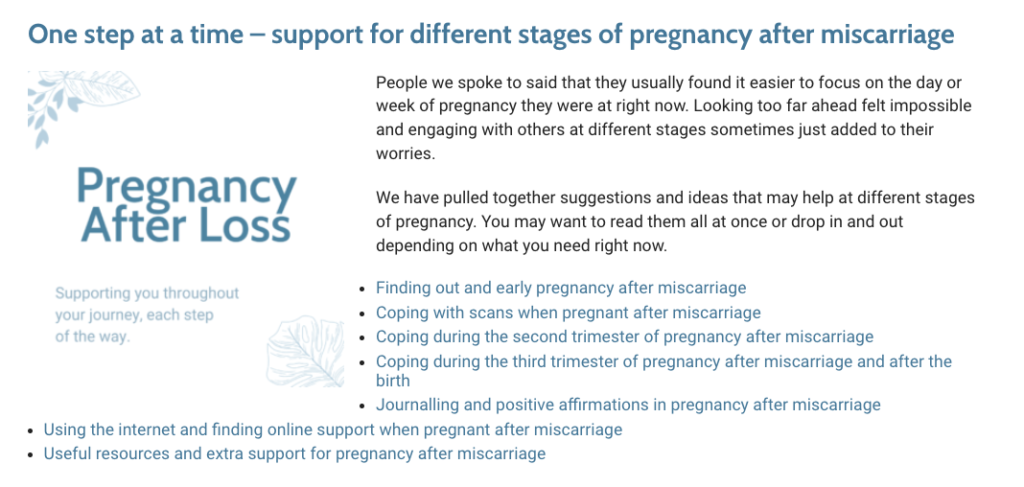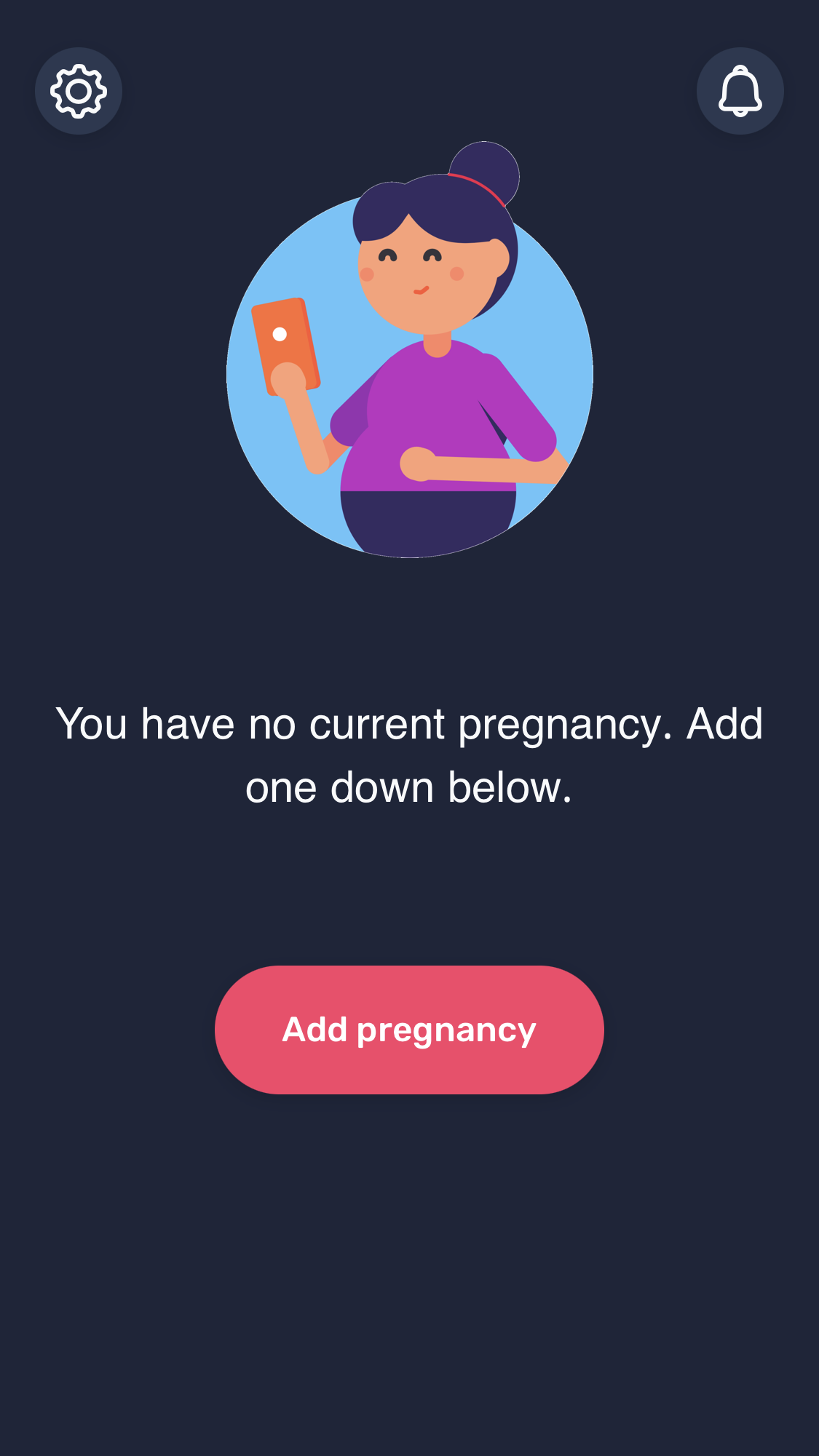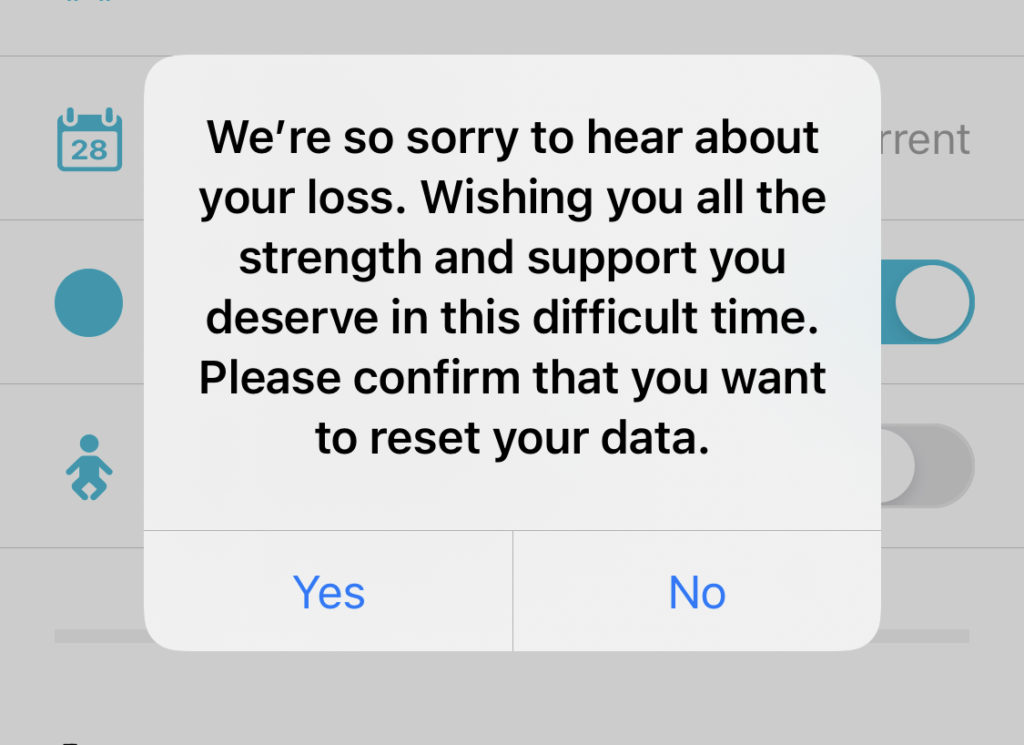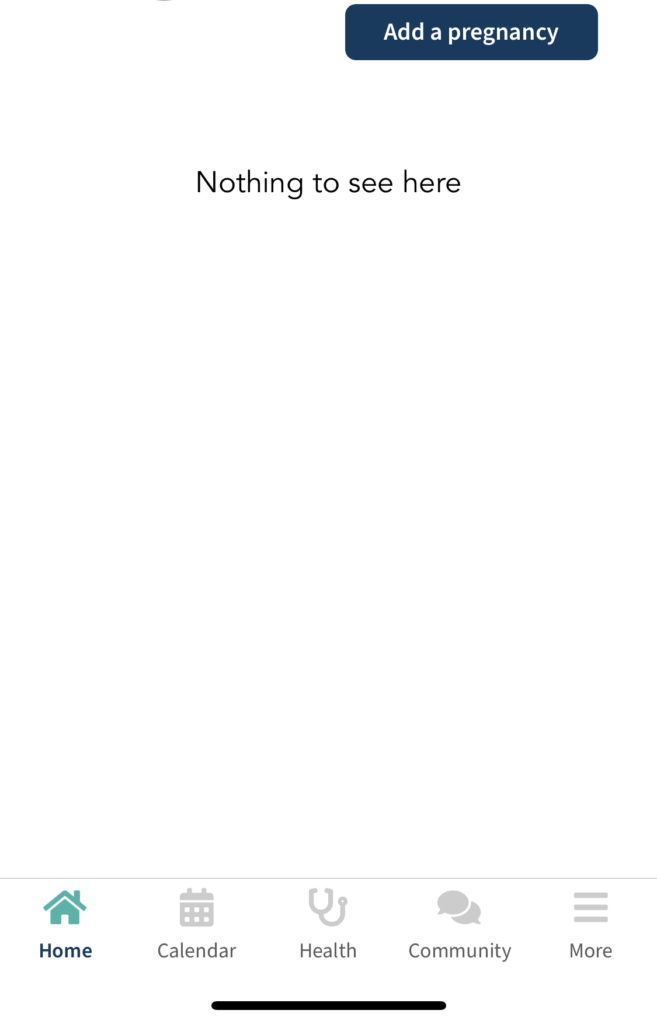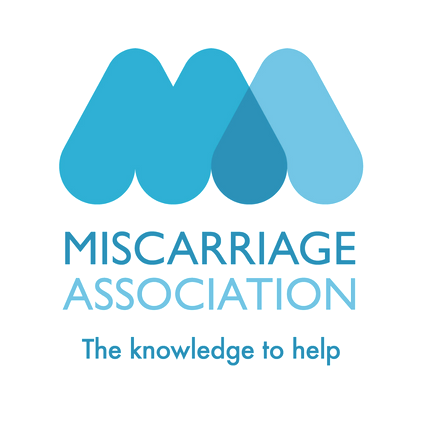My biggest worry is not piles, or stretch marks. It’s losing my baby again.
Do you want to ‘end’ or ‘delete’ your pregnancy?
There’s a picture in an app on my phone of a tiny embryo. Apparently, my baby is the size of a peach. Their tiny heart is beating fast. Except it isn’t. I’ve just been told this baby hasn’t survived. They died five weeks ago, quietly and secretly, my body continuing to feel pregnant and sick even now.
I check the app where there is a quote from Gemma in Liverpool telling me to buy some maternity leggings. She lived in hers. I click ‘Pregnancy Loss’ and I’m given the option to ‘End’ or ‘Delete’ the pregnancy. If I click ‘End’, the information tells me the pregnancy will be terminated. I presume they mean they will stop the week-by-week tracking but keep the current data. If I click ‘Delete’, all information about this pregnancy will be removed from my phone.
The language feels harsh and unsympathetic. Neither option appeals. I click delete and a new screen tells me I have no current pregnancy. Cheers for that. I didn’t think I could feel any worse but it seems there are more tears to be shed.
If I’m going to offer them the benefit of the doubt, maybe you have to have experienced a loss yourself to understand how that wording could trigger a wave of fresh hurt. But how about some user research?
Pregnancy after a miscarriage was harder than the loss itself
Needless to say, I didn’t use an app during my next pregnancy. I was scared of getting too attached. I couldn’t find a single one that reflected the terrifying experience of being pregnant after a previous loss.
My miscarriage was devastating but it happened quickly and then I could grieve and heal. But the entire subsequent pregnancy was spent thinking about that trauma and being scared of how I would cope if it happened again. It was the hardest nine months of my life.
Have pregnancy apps caught up?
Two years on and I’ve just downloaded five more pregnancy apps. I’m not pregnant but I’m intrigued as to whether anything has changed. Research I have done for the Miscarriage Association clearly shows that people who are pregnant after loss want timely support, based on the stage of pregnancy they are at. Looking too far ahead feels overwhelming and, for some, tempting fate.
An American charity PALS (Pregnancy After Loss Support) has released its own app. I found it too American for me and not really relevant to the UK healthcare system but it’s a wonderful start. The language is more considered and there are links to medications, affirmations, and coping skills. I want to see if any other apps have made changes too.
I search for both pregnancy after loss and miscarriage. I look at the week-by-week advice. I check what would happen if I want to tell the app I am no longer pregnant.
Support for loss?
The first has barely a mention of miscarriage and none of being pregnant after a loss. I can start to choose baby names at 6 weeks pregnant and scroll through 3D pictures of what my baby might look like as it grows.
I click to report a loss and a message comes up ‘We’re so sorry to hear about your loss. Wishing you all the strength and support you deserve in this difficult time. Please confirm you want to reset your data.’
I confirm and am taken suddenly to a page full of information on miscarriage, stillbirth and loss. It feels as if I have been transported to the dark side of the app, the one where things that go wrong are actually discussed. A place that must be kept separate from people who are lucky enough to still be pregnant. There is an article about pregnancy after loss here too. But I don’t want to read that now. I wanted that support when I was still pregnant.
In the next app, I have to select whether I am a first-time parent or not. Maybe they will ask if I have had any previous losses and personalise it that way. They don’t.
They do have a ‘Report a loss’ option but I can only do this if I tick the box to sign up for their personalised baby development newsletter and relevant special offers. This is exactly what I DON’T want if I have just lost a baby but I check it anyway to see what happens.
Reporting a loss means I am given the option to stop receiving emails and updates relating to this pregnancy. It also removes all record of the pregnancy. Only live births remain under the health and family section. Searching pregnancy after loss brings up info on postpartum hair loss and weight loss.
The third app seems quite terrifyingly commercial. I don’t want to give them my details in case I can never remove myself from all the possible baby-related spam lists. The option for loss here is to ‘Remove this pregnancy’ and then we are told ‘This information has been cleared’. While they mention support for miscarriage, neither of the charities they link to actually specialises in miscarriage. One is a charity for stillbirth and neonatal loss, the other focuses on research.
On the fourth, I have the option to reset my details after reporting a miscarriage.
I was interested in the phrasing so I changed my due date to one that placed me in the third trimester and then reported a loss. They still use the word miscarriage. A loss after 24 weeks is a stillbirth. Language is important. Even people who lose babies in the second trimester can struggle with the word miscarriage.
I select ‘stillbirth’ from the drop-down menu but they still use the phrase miscarriage on the next screen. And when I reset my account the phrasing on my timeline changes to ‘Nothing to see here’. Two weeks later I find a generic email in my spam with a link to a badly-proofed article about miscarriage using outdated terms.
The content on loss is improving, although it often seems to be an insensitive and badly researched afterthought. The best support comes in ‘What to Expect’. If you lose a baby you can turn on ‘Healing mode‘ with articles and support related to your loss. I can’t find any information on pregnancy after a loss here, although I do find a community-created thread for those pregnant with rainbow babies – a term often used to refer to a baby born after a previous loss.
Support for pregnancy after loss?
I have yet to find an article about any of the difficulties faced by anyone who has had a previous loss in any of the main sections of mainstream apps.
Nothing on managing the anxiety that almost immediately replaces the joy of a positive test.
Nothing on coping with scans in the same room as the one where you were told your baby had died.
Nothing on living day to day with simmering anxiety, a lump in your throat, on starting every sentence with ‘if’ not ‘when’.
Nothing on the confusing, guilt-ridden knowledge that this much-wanted baby wouldn’t be here if you hadn’t lost the previous one.
Nothing on the fear that another loss would destroy you and your hopes for a family.
Of course, they don’t need to put it like that. I’m looking for an acknowledgment that pregnancy isn’t always sunshine and light. An awareness that some of us would welcome piles and stretch marks if it meant we were carrying a pregnancy to term. Maybe just some sensitive signposting to appropriate support for pregnancy after loss in each stage.
One in four pregnancies ends in loss. It’s not a rare occurrence. For many people, two lines on a test will bring anxiety and fear before it brings joy. Is it still more important to ‘protect’ pregnant people from any mention of things going wrong than it is to offer support to the thousands for whom it already has? Do we still think pregnant women are so fragile that it’s better for them to only find out about the possibility of loss after it crashes unexpectedly into their hopes for the future?
In the last few years, there has been an increase in places offering an opt-out for people who don’t want to receive marketing emails related to days celebrating mothers and fathers. When are pregnancy apps and weekly pregnancy emails going to offer support that reflects the reality of many pregnancies?
New support from the Miscarriage Association
In the meantime, I’ve just finished a set of new Pregnancy after Loss resources for the Miscarriage Association. Based on research with over a thousand women and their partners, the articles offer specific support for the issues that come up at different stages of pregnancy after a loss. The hub also contains audio discussions with women who have been there, links to supportive online groups for early and later pregnancy after loss and information on research-based coping techniques.
No statistics, information or scans can remove the anxiety completely. Living with life-changing uncertainty takes strength and courage that is rarely acknowledged in pregnancy trackers and NHS literature alike. With these resources I hope to support and walk alongside people who are struggling, improving their ability to cope with whatever their new pregnancy brings.
